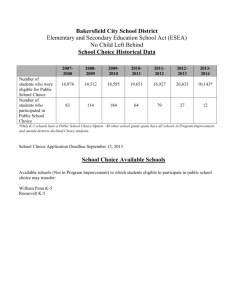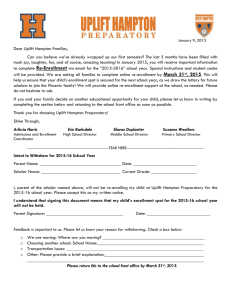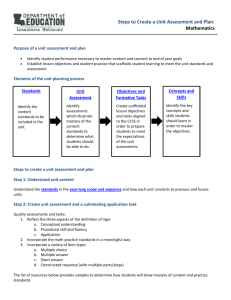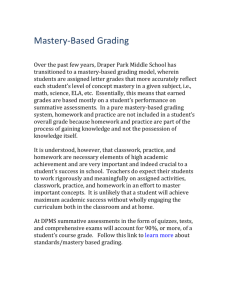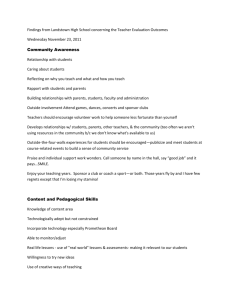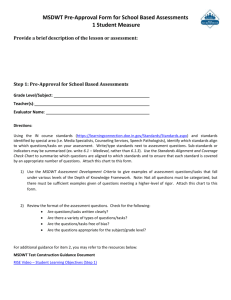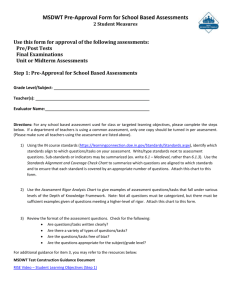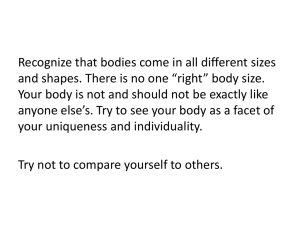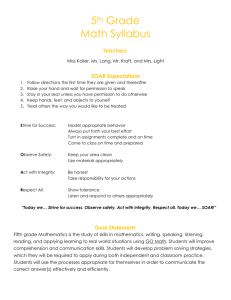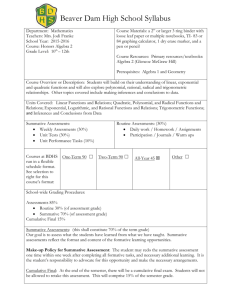Uplift Hampton Assessment Policy
advertisement
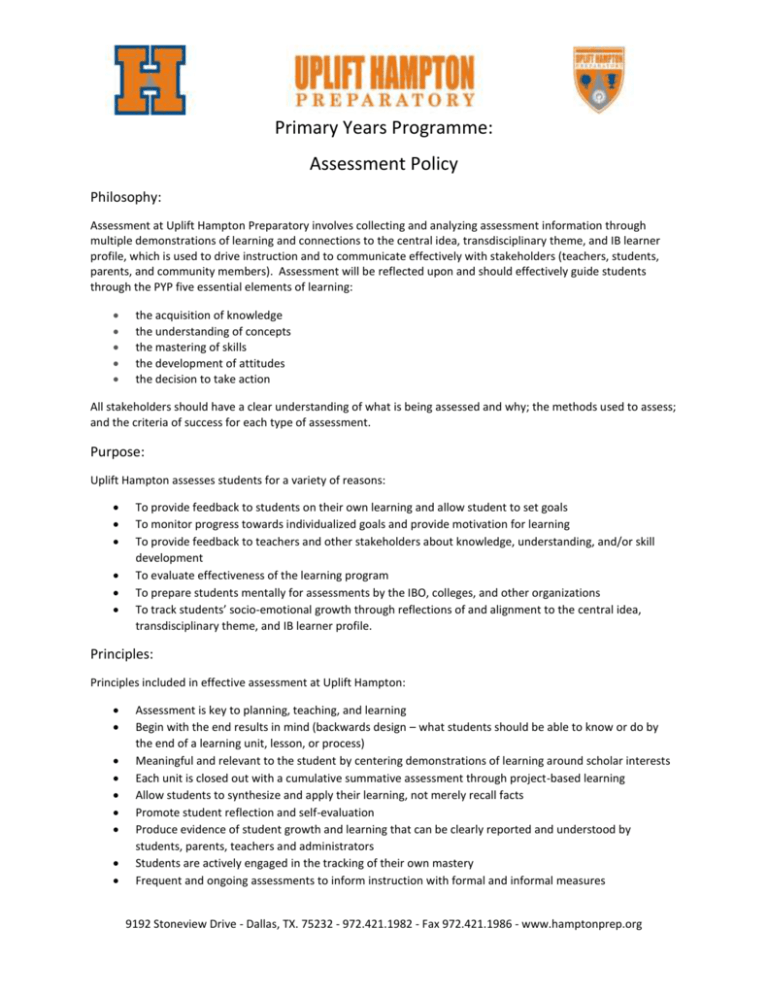
Primary Years Programme: Assessment Policy Philosophy: Assessment at Uplift Hampton Preparatory involves collecting and analyzing assessment information through multiple demonstrations of learning and connections to the central idea, transdisciplinary theme, and IB learner profile, which is used to drive instruction and to communicate effectively with stakeholders (teachers, students, parents, and community members). Assessment will be reflected upon and should effectively guide students through the PYP five essential elements of learning: the acquisition of knowledge the understanding of concepts the mastering of skills the development of attitudes the decision to take action All stakeholders should have a clear understanding of what is being assessed and why; the methods used to assess; and the criteria of success for each type of assessment. Purpose: Uplift Hampton assesses students for a variety of reasons: To provide feedback to students on their own learning and allow student to set goals To monitor progress towards individualized goals and provide motivation for learning To provide feedback to teachers and other stakeholders about knowledge, understanding, and/or skill development To evaluate effectiveness of the learning program To prepare students mentally for assessments by the IBO, colleges, and other organizations To track students’ socio-emotional growth through reflections of and alignment to the central idea, transdisciplinary theme, and IB learner profile. Principles: Principles included in effective assessment at Uplift Hampton: Assessment is key to planning, teaching, and learning Begin with the end results in mind (backwards design – what students should be able to know or do by the end of a learning unit, lesson, or process) Meaningful and relevant to the student by centering demonstrations of learning around scholar interests Each unit is closed out with a cumulative summative assessment through project-based learning Allow students to synthesize and apply their learning, not merely recall facts Promote student reflection and self-evaluation Produce evidence of student growth and learning that can be clearly reported and understood by students, parents, teachers and administrators Students are actively engaged in the tracking of their own mastery Frequent and ongoing assessments to inform instruction with formal and informal measures 9192 Stoneview Drive - Dallas, TX. 75232 - 972.421.1982 - Fax 972.421.1986 - www.hamptonprep.org Highlight students’ strengths and allows them to demonstrate mastery and expertise in a variety of ways Differentiated to meet the individual student’s learning needs in accordance with their IEPs Progress towards implementation of the IB Learner Profile, Central Idea, Lines of Inquiry, and Key Concepts Clear expectations are set through the creation of tailored and specific rubrics Methods: Assessment is a daily activity at Uplift Hampton and takes various forms. There are two main categories of assessment: Formative Assessment is interwoven with daily learning and helps teachers and students find out what children already know, understand and can do in order to plan for further student learning and growth. Formative assessment occurs throughout a learning unit or process. Examples of formative assessments include: teacher observations, anecdotal records, course work, BAS benchmarks, language bi-weeklies, checks for understanding, weekly quizzes and tests, exit tickets, homework, well-defined rubrics, and classroom discussions. Summative Assessment takes place at the end of a learning unit or process. It is a chance for students, teachers and parents to evaluate progress and demonstrate what has been learned over the course of time. It is a formal ending point to a taught unit or of a process but not necessarily the end of student learning in the areas being assessed. Examples of summative assessments include: State of Texas Assessment of Academic Readiness (STAAR), well-defined rubrics, unit assessment, Common Assessments (CA), and end of year Measures of Academic Progress (MAP) test. Reporting: Student progress is reported in a variety of ways including: Type PowerSchool Parent Portal Progress Reports Report Cards Student Tracking Common Assessments Measures of Academic Progress (MAP) Report State of Texas Assessment of Academic Readiness (STAAR) reports TELPAS What Online parent resource Who K-5 When Ongoing Current grades report Final quarterly grades report Students engagement of their own mastery and growth Network reporting on benchmark mastery National report of growth measure assessment State report of mastery measure assessment K-5 K-5 Every 4 weeks Every 9 weeks Students Ongoing Teachers, Students, Family K-5 Triannual Report of language proficiency 3-5 Students identified as Limited English Proficient Beginning, Middle, and End of year End of year End of Year 9192 Stoneview Drive - Dallas, TX. 75232 - 972.421.1982 - Fax 972.421.1986 - www.hamptonprep.org Parent Teacher Conferences Teacher communication Teacher or student led conferences Notes home, emails and phone calls K-5 Fall and Spring K-5 Ongoing 9192 Stoneview Drive - Dallas, TX. 75232 - 972.421.1982 - Fax 972.421.1986 - www.hamptonprep.org
